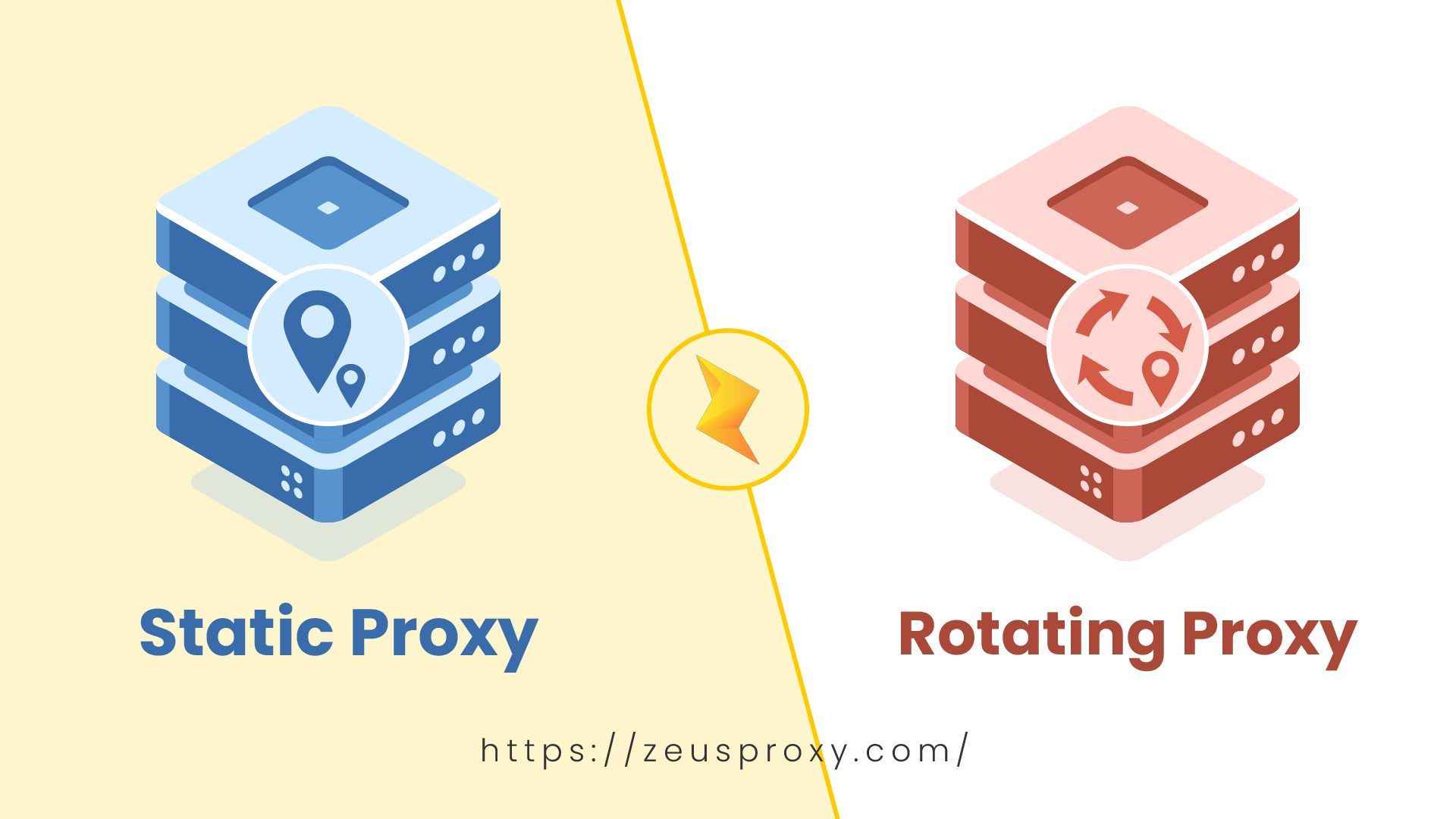The choice between rotating and static proxies plays a critical role in optimizing your experience. But how do you decide which one best aligns with your needs?
To make the right choice, it's essential to grasp the details of each proxy type.
|
- Fixed IP address: Static proxies offer a consistent, unchanging IP address exclusively assigned to you.
- IP types: These proxies are typically associated with datacenter and ISP IPs.
|
- Automatic IP changes: Rotating proxies grant access to a pool of various IP addresses, and your IP can switch randomly or according to specific parameters, such as after a set time, after each page reload, or when the current IP becomes unusable.
- IP types: Rotating proxies often include residential IPs, which encompass both household and mobile IPs.
|
Distinguishing rotating and static proxies
|
- Type: Static proxies are usually linked with datacenter and ISP IPs, whereas rotating proxies are typically associated with residential and mobile IPs.
- Number of IPs: Static proxies represent a single IP, whereas rotating proxies comprise multiple distinct IPs.
- Speed: Rotating proxies may exhibit slower connection speeds compared to static counterparts.
- Price: Rotating proxies tend to be pricier, with costs based on data usage (in gigabytes), whereas static proxies are priced according to the number of IPs.
- Connection type: Static proxies establish a direct connection to a specific IP, offering you full control over that IP. In contrast, rotating proxies connect to an IP pool managed by a server, with the server selecting the IP on your behalf.
- Exclusivity: Static proxies can be either shared or private, whereas rotating proxies are usually shared.
- Maintenance: When a static proxy encounters issues, you must address them. In contrast, rotating proxies only necessitate switching to a different IP from the pool.
|
Choosing between static and rotating proxies
|
Your choice should be tailored to your specific use case. If your objective involves maintaining accounts over an extended period, static proxies with fixed IPs are the way to go. On the other hand, if your goal entails frequently switching IPs to access various accounts, rotating proxies provide the versatility of different IP addresses.
While rotating proxies may come with a higher price point than static alternatives, it's crucial to align your choice with your usage requirements. For example, when handling high-value accounts on platforms like eBay, Etsy, Amazon, GMC, or Facebook Ads, opting for a single static proxy per account guarantees stability and an authentic user experience. Conversely, for lower-value accounts, such as those used for seeding on Facebook, you can optimize costs by utilizing a shared rotating proxy for approximately 30 accounts.
Once you've determined the type of proxy that suits your needs, select a reputable provider and ensure the cleanliness of the IPs. Refer to our previous articles for guidance on selecting a trustworthy proxy provider and verifying the quality of the IPs.
|
|



